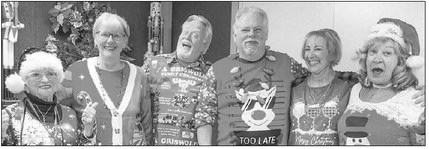Older adults are more vulnerable
FIRE SAFETY
by Eloy Gomez
GRF safety/emergency coordinator
As we grow older, our bodies change. Poor eyesight, loss of hearing, arthritis, dementia and side effects from medicine can make it more difficult to react to a fire. We need to consider these changes and how they may affect our abilities. In comparison to the population at large, people 65 and older are twice as likely to be killed or injured by fires.
Fire Safety in the Kitchen
Cooking fires are the No. 1 cause of home fires. Many older adults also experience burn-related injuries during cooking. Prevent fires and burns by being watchful and alert while you cook.
• Stay in the kitchen when you are frying, grilling, boiling or broiling food. If you leave the kitchen for even a short period of time, turn off the stove.
• If you are simmering, baking or roasting food, check it regularly. Remain in the home while food is cooking, and use a timer to remind you that you’re cooking.
• Keep a pot lid nearby when you cook. If a fire starts in the pan, slide the lid over the pot and turn off the burner.
• Turn pot handles toward the back of the stove so the pots will not be knocked off.
• Clean oven and stove top after each use.
• Keep items such paper towels, plastic or wood utensils, decorations or anything that can burn away from the stove top.
• Don’t cook if you are sleepy, have consumed alcohol, or have taken medicine or drugs that cause drowsiness.
• Wear short, close-fitting or tightly rolled sleeves while cooking. Loose clothing can catch fire if it touches a gas flame or an electric burner.
• Check the kitchen after you finish cooking. Make sure the oven, burners and other appliances are off.
• If a fire starts, stay calm and get out. Once out, call 911 or the fire department from a cell phone or a neighbor’s telephone. Have an outside meeting place at a safe distance in front of your unit where first responders can see you.
For questions or comments on this article, contact me at (562) 431-6586, ext. 356.


